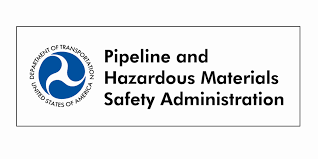Pipeline and Hazardous Materials Safety Administration (PHMSA): Ensuring Safety in Transportation of Dangerous Goods
The Pipeline and Hazardous Materials Safety Administration (PHMSA) is a critical agency within the U.S. Department of Transportation (DOT) responsible for ensuring the safe transportation of hazardous materials and the integrity of pipelines. Established in 2004, PHMSA plays a pivotal role in protecting people and the environment by regulating and overseeing the transportation of hazardous substances. This article explores PHMSA’s mission, key functions, and impact on safety and environmental protection.
Mission and Vision
PHMSA’s mission is to:
- Promote Safety: Develop and enforce regulations to ensure the safe and secure transportation of hazardous materials and the operation of pipelines.
- Protect People and the Environment: Minimize risks associated with the transportation of dangerous goods and prevent incidents that could harm public health and the environment.
- Enhance Efficiency: Improve the safety and efficiency of the transportation system through innovative practices and technologies.
Key Functions and Responsibilities
PHMSA’s responsibilities encompass a broad range of activities aimed at ensuring safety and regulatory compliance in the transportation of hazardous materials and pipeline operations.
1. Hazardous Materials Safety
PHMSA regulates the transportation of hazardous materials by air, highway, rail, and water through:
- Regulations and Standards: Developing and enforcing safety standards for the packaging, labeling, and transportation of hazardous materials. This includes compliance with the Hazardous Materials Regulations (HMR) and the implementation of international standards.
- Training and Outreach: Providing training programs and resources for businesses and emergency responders to enhance understanding of hazardous materials safety and regulatory requirements.
- Incident Investigation: Investigating accidents and incidents involving hazardous materials to determine causes and implement corrective actions to prevent future occurrences.
2. Pipeline Safety
PHMSA oversees the safety of the nation’s pipeline infrastructure, including natural gas and hazardous liquid pipelines, through:
- Regulatory Oversight: Enforcing regulations for the construction, operation, and maintenance of pipelines. This includes overseeing pipeline operators to ensure compliance with safety standards.
- Inspection and Enforcement: Conducting inspections and audits of pipeline operations to verify adherence to safety regulations and addressing non-compliance issues.
- Emergency Response: Coordinating with local and national agencies to manage and respond to pipeline incidents, including spills and leaks.
3. Research and Innovation
PHMSA supports research and development initiatives to improve safety practices and technologies in hazardous materials and pipeline transportation:
- Safety Research: Funding and conducting research to advance safety technologies, risk assessment methods, and best practices in hazardous materials handling and pipeline operations.
- Technology Deployment: Promoting the adoption of innovative technologies and solutions that enhance safety and efficiency in the transportation of hazardous materials and pipeline management.
Impact on Safety and Environmental Protection
PHMSA plays a crucial role in safeguarding public health and the environment through:
1. Reducing Risks
By implementing and enforcing safety regulations, PHMSA helps to mitigate risks associated with the transportation of hazardous materials and pipeline operations, reducing the likelihood of accidents and incidents.
2. Enhancing Safety Standards
PHMSA’s regulatory activities contribute to the establishment and continuous improvement of safety standards, ensuring that transportation and pipeline operations meet high safety and environmental protection standards.
3. Promoting Public Awareness
Through training programs, public outreach, and incident reporting, PHMSA enhances public awareness of safety practices and regulatory requirements related to hazardous materials and pipelines.
Community and Industry Collaboration
PHMSA collaborates with various stakeholders to advance safety and regulatory compliance:
- Partnerships with Industry: Working with industry leaders to develop and implement best practices and innovative solutions for hazardous materials transportation and pipeline safety.
- Coordination with Local Agencies: Collaborating with local emergency response teams and governmental agencies to enhance preparedness and response capabilities for incidents involving hazardous materials and pipelines.
Conclusion
The Pipeline and Hazardous Materials Safety Administration is a key agency dedicated to ensuring the safe transportation of hazardous materials and the integrity of pipeline infrastructure. Through its regulatory oversight, research efforts, and collaborative approach, PHMSA plays a vital role in protecting public health, safety, and the environment.
As PHMSA continues to evolve and address emerging challenges, it remains committed to its mission of enhancing safety and efficiency in the transportation of dangerous goods and pipeline operations.




